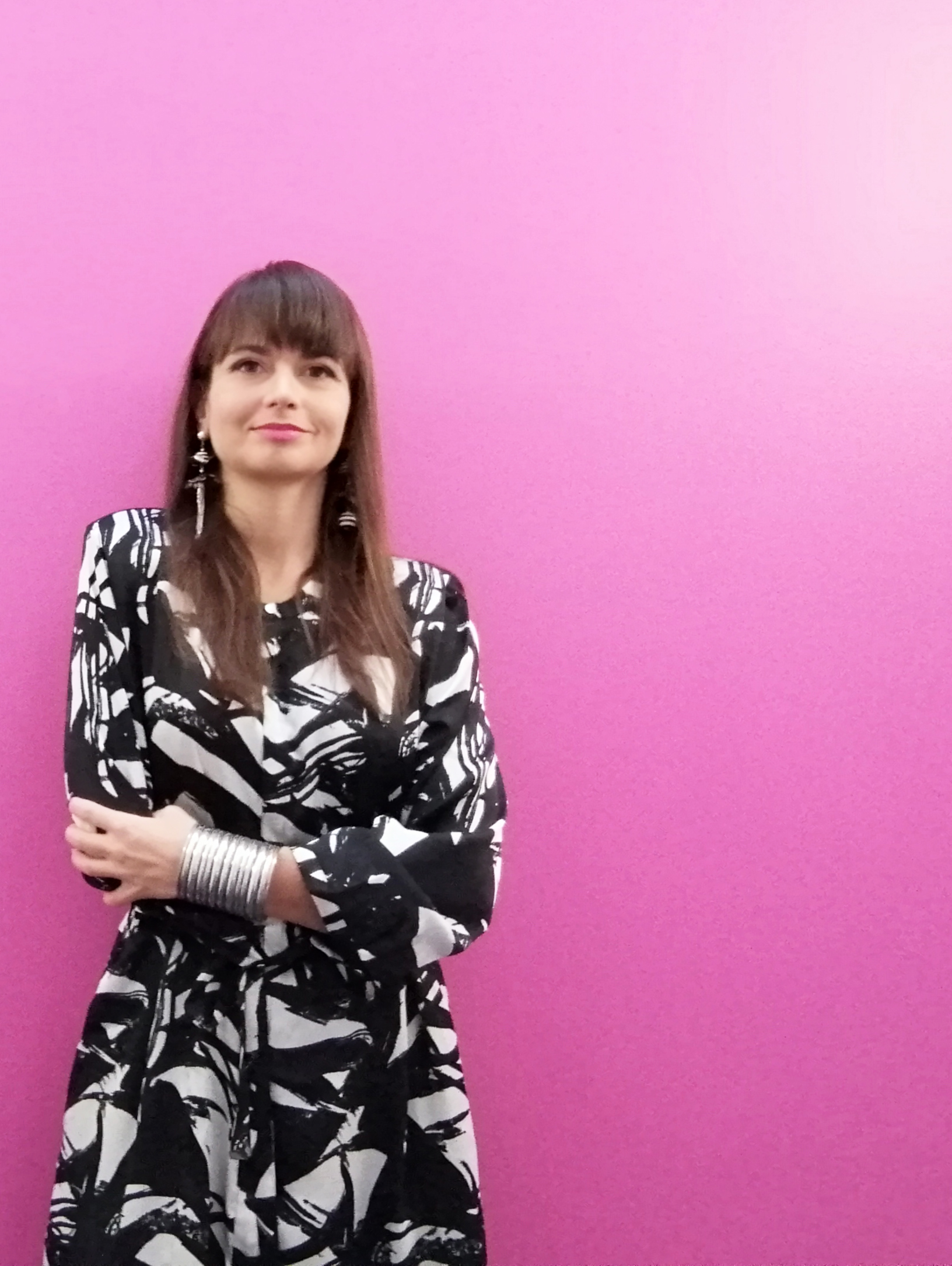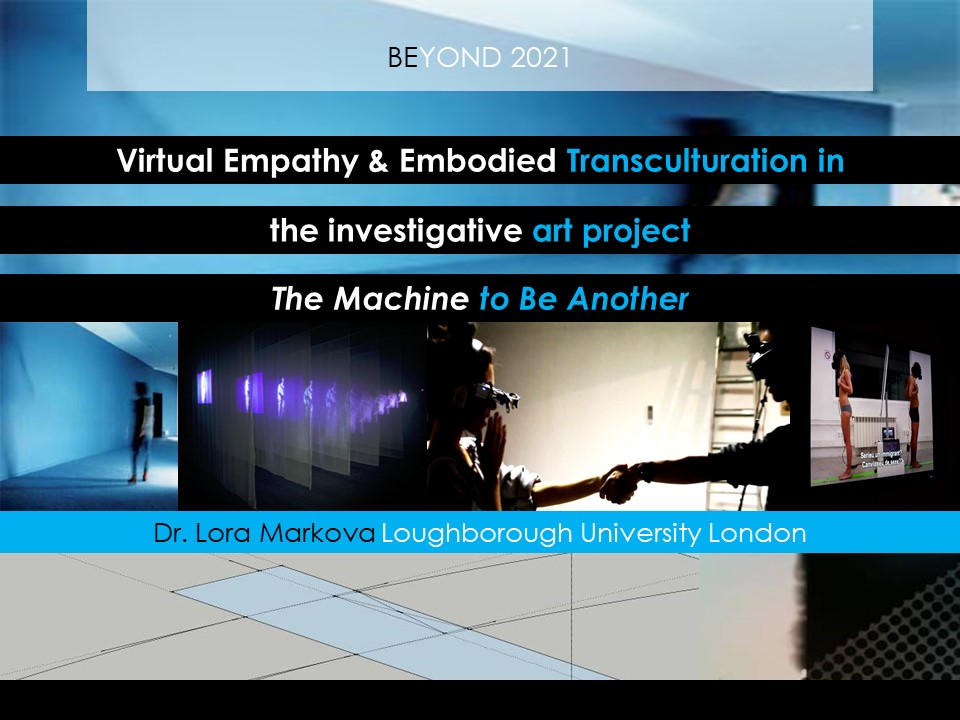Poster
Poster
Virtual Empathy and Embodied Transculturation in the Investigative Art Project ‘The Machine to be Another’
This proposal explores the potential of embodied aesthetic experiences to generate transcultural identities and ‘third spaces’ (Bhabha 1994) of transcending cultural boundaries at a non-verbal, somatic and affective level via the analysis of the investigative art project The Machine to Be Another by BeAnotherLab.
The Machine to Be Another (ongoing since 2014) offers several scenarios of interaction – Gender Swap, empathy towards immigrants and refugees, sensory understanding of impairment – that generate ‘virtual empathy’ (Bolter and Grusin 1999) based on neuroscience experiments, telepresence and Oculus Rift technology. The Machine employs first-person camera and footage as empathic tools and provides a multiplicity of self-reflexive perspectives that functions as a form of disruptive ‘montage’ subverting regular modes of perception.
As Suhr and Willerslev (2013) have argued, montage offers a tool to break the mimetic dogma, so that the destabilization of common-sense perception could make invisible social realities visible. As studied herewith, the Machine’s somaesthetic fusion between subjective camera and sensorimotor destabilization provokes imaginary extension of one’s self in multiple versions. Conceptually these experiential dimensions resemble Mikhail Epstein’s understanding of transculturality as the freedom of being different from others, as well as from one’s own self.
The Machine also plays a subversive role by transgressing ideological and hierarchical dichotomies such as self/other, mind/body, organism/machine, male/female, which Donna Haraway (1984) has conceptualised via the metaphor of the ‘cyborg.’ Hence, the discussion establishes conceptual parallels between Haraway’s cyborg manifesto and the transcultural paradigm, since both entail overcoming of essentialism and binary oppositions.
Drawing upon the Machine’s place-specific sessions at Somerset House, London and FACT, Liverpool, this research suggests a paradigmatic shift beyond representation and discursive formation of cultural identities towards ‘embodied transculturation’ via media re-enactment of becoming a cultural ‘other.’

Lora Markova
Loughborough University London
Biography−
Lora is a Research Associate at the Institute for Media and Creative Industries at Loughborough London and her research and publications focus on creative innovation, transcultural aesthetics and media arts. Lora’s PhD (Cum Laude 2017) was completed at Deusto University, Bilbao with research mobilities at Goldsmiths University of London and University of Birmingham. Her professional background involves positions at the former Netherlands Media Art Institute-NIMk, Netherlands Institute for Cultural Heritage- ICN, Greenpeace International (Amsterdam), the European Commission (Brussels), and she has served as EACEA/2007 Expert for the EU Culture and MEDIA programmes. As a visual artist, she has presented moving image at LOOP: Barcelona, Not Still Art Festival New York, Glitch Montreal, Miami Short, among others.
Virtual Empathy and Embodied Transculturation in the Investigative Art Project ‘The Machine to be Another’
Gallery

The Machine to be Another trailer
The Machine to be Another at FACT Liverpool
https://www.fact.co.uk/the-machine-to-be-another